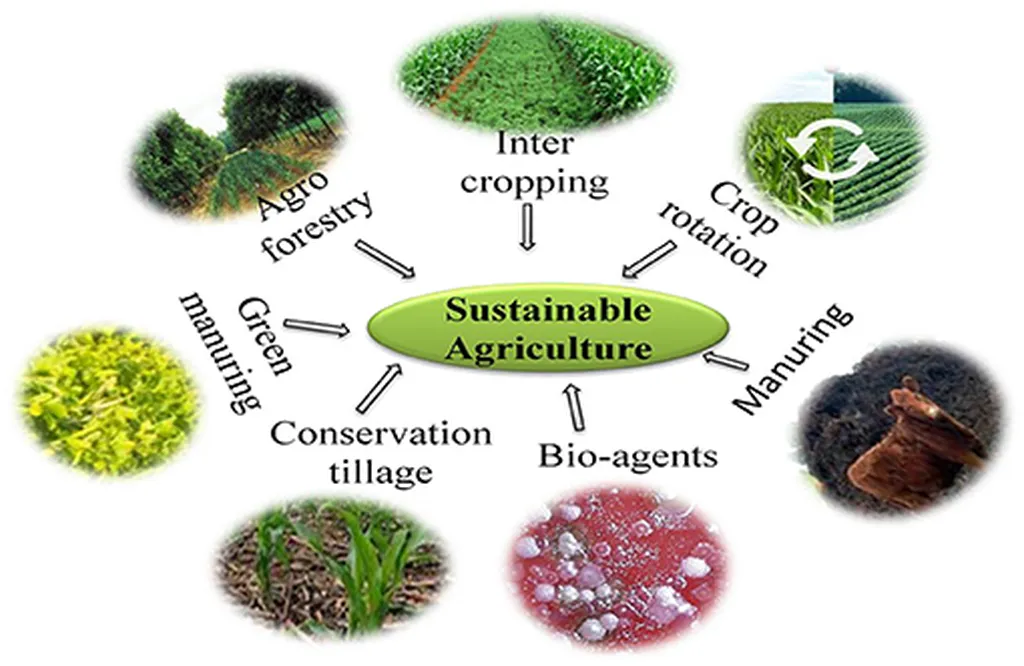In the heart of Brazil’s Nova Alta Paulista region, a groundbreaking study is reshaping the future of sustainable agriculture, with implications that could ripple through the energy sector. Vagner Nascimento, a researcher from the Department of Plant Production at São Paulo State University (UNESP) in Dracena, Brazil, has been exploring innovative ways to boost corn yields while reducing reliance on synthetic fertilizers. His recent work, published in the journal ‘Frontiers in Sustainable Food Systems’ (translated as ‘Frontiers in Sustainable Food Systems’), offers a promising path forward.
Nascimento’s study focuses on intercropping corn with cover crops and inoculating the plants with diazotrophic bacteria, specifically Azospirillum brasilense. This low-cost, sustainable practice enhances nutrient cycling and uptake, leading to improved crop yields. The experiment, conducted over two years, compared monocropped corn with corn intercropped with Crotalaria spectabilis, Urochloa ruziziensis, and a combination of both cover crops. The results were striking.
“Intercropping corn with Urochloa ruziziensis under inoculation, as well as corn with Crotalaria spectabilis + Urochloa ruziziensis, regardless of inoculation, significantly increased grain yield in the second year,” Nascimento explained. This finding is a game-changer for farmers looking to optimize production while minimizing input costs.
The study also revealed that intercropping corn with Crotalaria spectabilis enhanced relative leaf chlorophyll content at key growth stages, while intercropping with Urochloa ruziziensis improved leaf phosphorus content and reduced sulfur content. These nutritional benefits not only support healthier crops but also contribute to more efficient nutrient use, reducing the environmental footprint of agriculture.
The implications for the energy sector are substantial. As the world shifts towards low-carbon agriculture, practices that reduce reliance on synthetic fertilizers become increasingly important. By improving nutrient use efficiency and enhancing crop nutrition, these intercropping and inoculation strategies can support more sustainable and resilient agricultural systems. This, in turn, can contribute to a more stable and sustainable supply of agricultural feedstocks for the energy sector, such as corn for biofuels.
Nascimento’s research suggests that farmers can achieve higher yields and better nutrient management by adopting these sustainable practices. “This study provides a roadmap for optimizing corn production in a way that is both economically and environmentally beneficial,” Nascimento said. As the agricultural community continues to seek innovative solutions to the challenges of climate change and resource depletion, this research offers a beacon of hope and a practical pathway forward.
The study, published in ‘Frontiers in Sustainable Food Systems’, is a testament to the power of interdisciplinary research and the potential for sustainable practices to transform the future of agriculture and the energy sector. As we look ahead, the insights gained from this research could shape the development of new agricultural technologies and practices, paving the way for a more sustainable and resilient food system.

